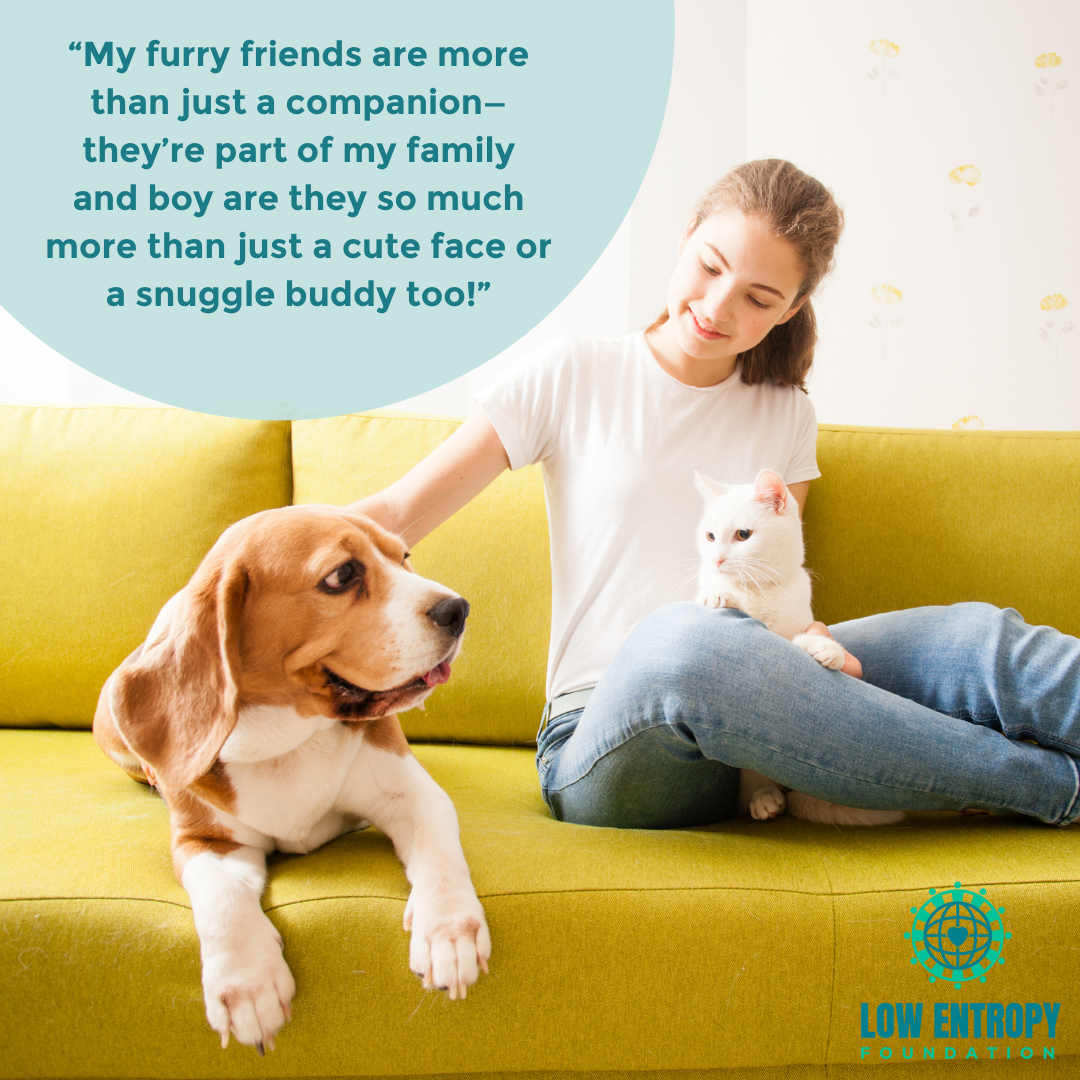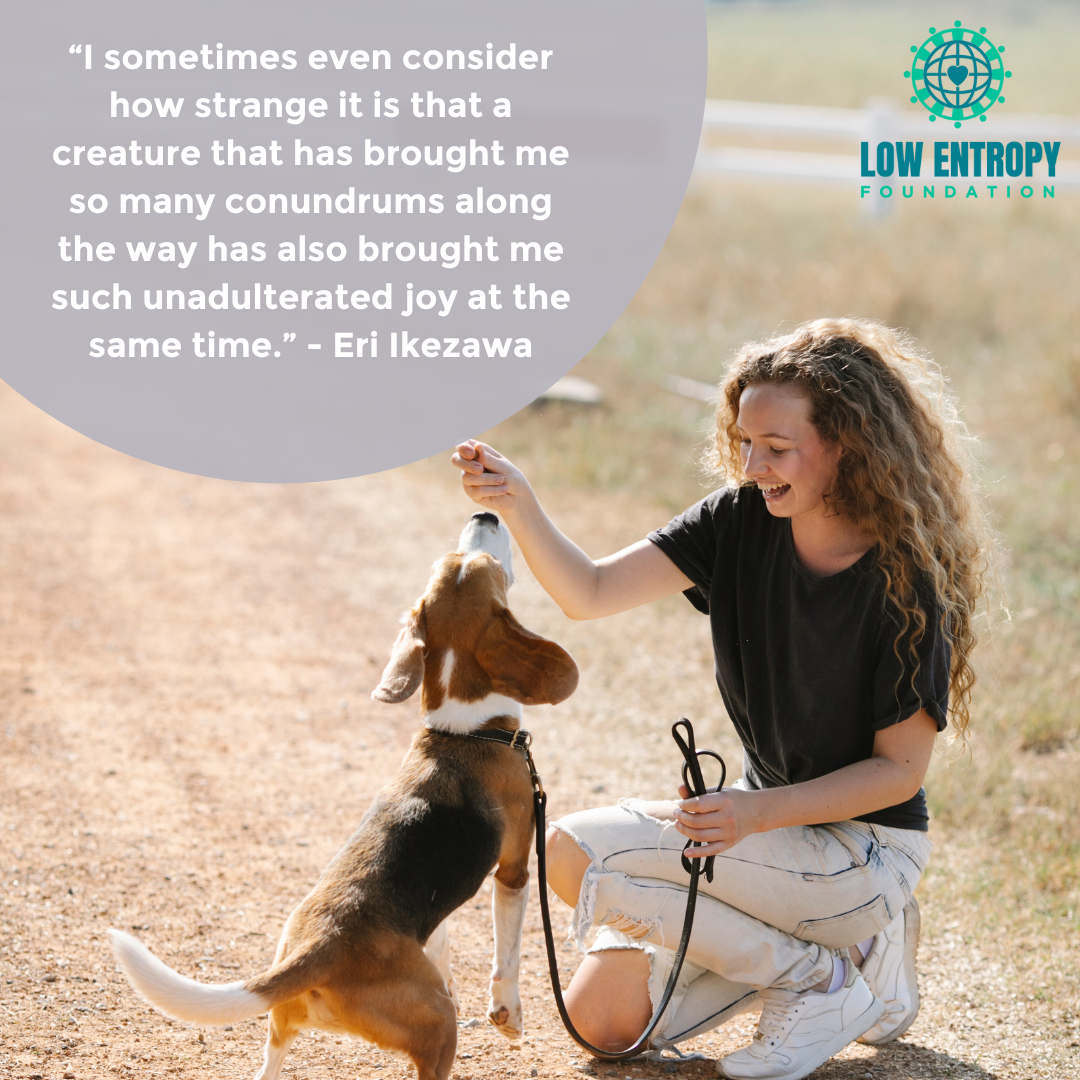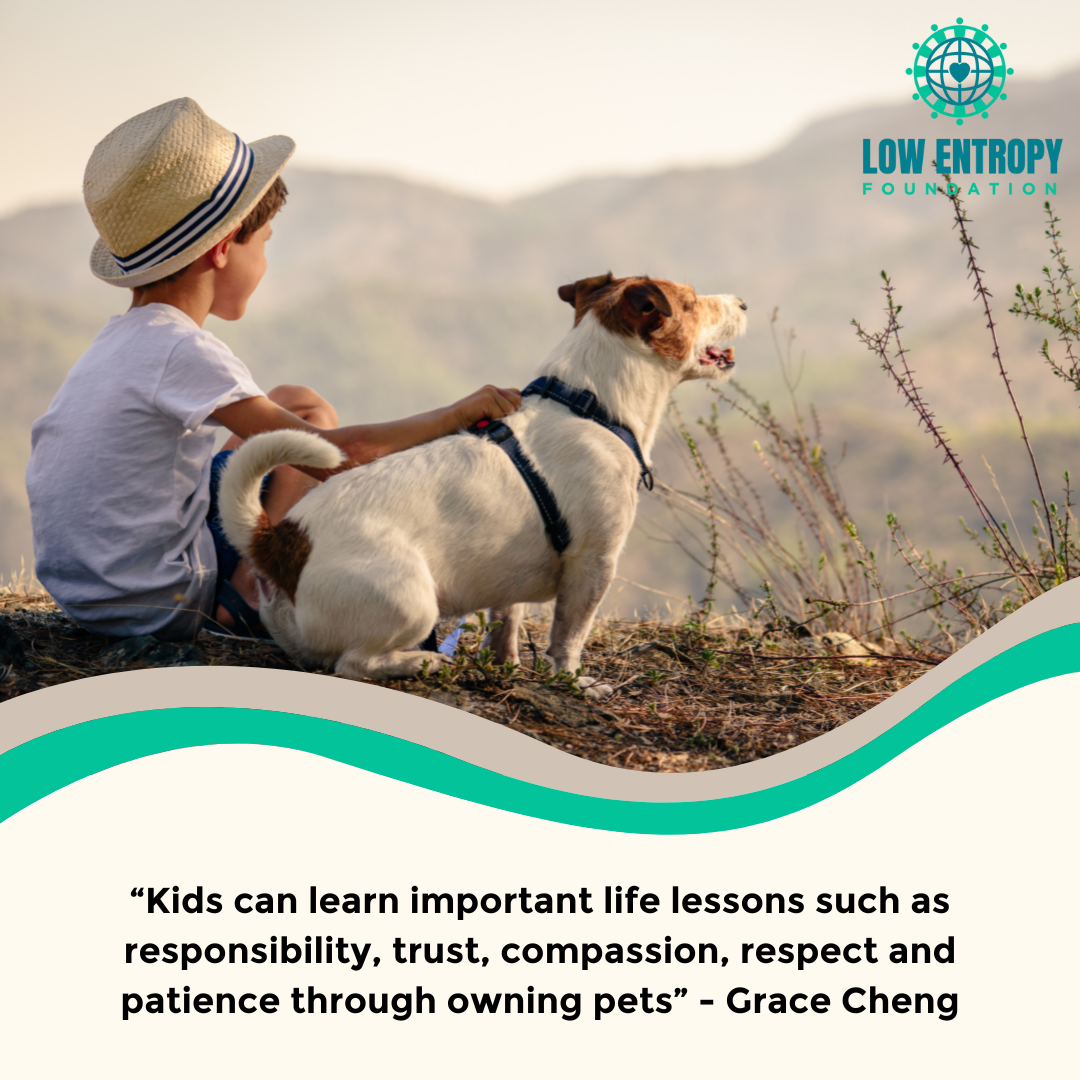Cassandra Di Lalla (she/her/hers) , Low Entropy Volunteer Writer
If my pet is offering love and care . . . I always take them up on that offer! But I always make sure it’s reciprocated and I also want to ensure they’re comfy and content in return.
As someone who struggles immensely with mental health, having my pets comfort me is an important part of my everyday life.
My furry friends are more than just a companion—they’re part of my family and boy are they so much more than just a cute face or a snuggle buddy too!
I’m sure all of you are dying to know about my furry friends so here you have it before anything else . . . there’s Zoey, Deena, and Marley. Zoey is a Siberian Husky/Akita Inu mix, Deena is a Tabby cat, and Marley is a Shih Tzu/Corgi/Mini Poodle mix.
Yes, it’s a busy household filled with fur and fun . . . sometimes muddy paws but that’s okay too!
My pets are very intelligent girls and they’ve got an incredibly special ability when it comes to being the support system I want and need. These soft and furry little beings sense when something’s wrong and they come straight to my rescue, wagging their tails, racing over to me with their little snack sized paws, etc.
I’m sure there are many of you who feel that using the “baby voice” with your pets seems more gentle and sensitive (not to mention, more engaged in conversation with them) but in reality, they’re thinking, “What the heck is that noise? Why are you squealing at me, mom?” Yeah, well . . . been there, done that and—GUILTY—I’m still doin’ it. But in fairness, if I were to put myself in their paws (or shoes ’cause that’s a thing), I’d have probably wondered why I sound like that too.
I just have so much love for these furballs and let’s be honest, sometimes we don’t even know what to do or say in order to express our gratitude towards them or our sheer happiness we feel seeing them just be themselves. Their quirks, different personalities, the way they place or fold their paws, the way they take up your personal space but you have to be okay with it because you’ve accepted life as a pet parent, etc.
Owning a pet is so rewarding but we seem to forget how truly special it is because we get caught up in our own wants and needs. We immerse ourselves in things that are sometimes not the best for us, yet, if you take a look at your dog giving you those puppy dog eyes, all they want are the simple things in life and they are often free. A great example of this would be your time; your dog might simply want to spend time with you whether that be playing, going for a walk, lounging next to you, watching TV with you or even learning new tricks or obedience training.
Most dogs have an abundance of energy and some can probably even run marathons so it’s only natural for them to want to run around or at least be engaged in some sort of mind and body stimulation. Your dog also loves when you talk to them so even though you two communicate differently, make a point of talking to your dog everyday in whatever way you communicate best with them whether that’s speaking a human language or a form of canine language.
Now, if you look at cats, I’m sure we can all agree that they’re more independent; however, that doesn’t mean your cat cannot help you on your journey to mental wellness. My cat has a very distinct way of saying hello to me every morning by meowing endlessly as if I’ve been ignoring her for a year, and running back and forth from the hallway to the dog bed (yes, the dog bed where her two sisters sleep) back to to the hallway . . . all while still meowing. She’ll hop, prance, and pounce on you without a single care and with total disregard of the fact that you’re either busy doing something or that her nails are sharp. But that’s okay, because, apparently she’s the boss . . . she makes herself heard.
Throughout the day, she likes to check up on me by stepping on my stomach and whacking me with her tail or if I’m in my office, she will gladly climb onto my chair and sit right where my head is (thank you Deena, for so generously deciding to stick your bum where my eyes and mouth are). She will bow her head and purr, which I have come to learn is something cats do to show you they trust you and highly respect you, so I am totally okay with that and, I too, respect her. It’s just funny that we as humans cannot dare put our behinds anywhere near their face without them looking highly offended and perplexed. But what can you do? I have accepted my life as a fur mom for a reason.
Had a bad day? You have free therapy waiting for you at home. Need a laugh? No worries, the pets have you covered with their constant shenanigans. Need to have a good cry? Let it rain, friends! They will help combat your sadness. Feeling under the weather? They’ll be there to comfort you whether you like it or not because they don’t like seeing you sick. Are you in pain physically, mentally, or both? Let them use their healing powers because otherwise, they’re miserable when you’re not well.
The love and care that my two dogs and cat have for each other and for me never ceases to amaze me. They are the sweetest, most loving creatures with the ability to sense when something is wrong or if you’re not feeling right. And yes, I talk to them about my problems because they don’t talk back . . . they’ll give you their paw or they’ll bump you with their head. It’s a wonderful feeling knowing that you’re providing them with the love and care they want, need, and deserve but it’s also so relieving knowing that your fur friends are loyal and are there to stay with you until the end.
–
Cassandra Di Lalla lives life purposefully. She enjoys reading, writing and mental health initiatives. She’s an animal lover for life and an innovative individual always finding new ways to create.









